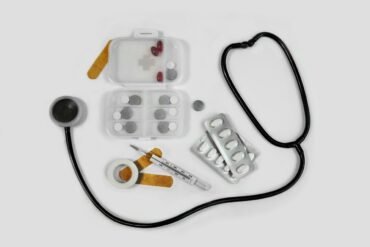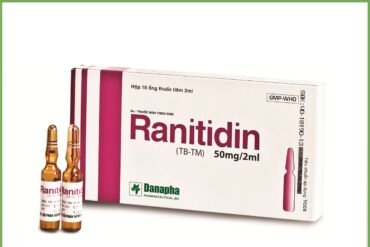A Guide to Antifungal Creams and Ointments

Table of Contents
- Understanding Fungal Infections: Causes and Symptoms
- Choosing the Right Antifungal Cream: Factors to Consider
- Applying Antifungal Creams Effectively: Helpful Tips and Guidelines
- Managing Side Effects: Common Concerns and Solutions
- When to Seek Medical Advice: Warning Signs and Expert Consultation
Understanding Fungal Infections: Causes and Symptoms
Fungal infections are common skin conditions caused by various types of fungi. These infections can affect different parts of the body, including the skin, nails, hair, and genitals. Understanding the causes and symptoms of fungal infections is essential for proper treatment and prevention.
Causes of Fungal Infections:
- Prolonged moisture and warmth: Fungi thrive in warm, moist environments, making certain areas of the body more susceptible to infection. This includes sweaty feet, groin, and armpits.
- Weakened immune system: People with weakened immune systems, such as those with diabetes or HIV/AIDS, are more prone to developing fungal infections.
- Direct contact: Coming into direct contact with an infected person or contaminated surface can transfer fungal spores to the skin, leading to an infection.
- Poor hygiene: Inadequate personal hygiene can increase the risk of fungal infections, as fungi tend to grow in unclean environments.
- Wearing tight or non-breathable clothing: Clothes that trap moisture and heat provide an ideal environment for fungi to grow, increasing the risk of infection.
Common Symptoms:
- Itching, redness, and swelling of the affected area.
- Scaling, cracking, or peeling of the skin.
- Formation of blisters or lesions.
- Discoloration, thickening, or crumbling of nails.
- Burning sensation or pain in the infected area.
It is important to note that symptoms can vary depending on the type of fungal infection and the affected area of the body. Consulting a healthcare professional is crucial for an accurate diagnosis.
While there are various treatments available for fungal infections, antifungal creams and ointments are widely used. These topical medications work by killing or inhibiting the growth of fungi, providing relief from symptoms and aiding in the healing process. They are typically applied to the affected area once or twice a day, following proper cleaning and drying of the skin.
It is essential to complete the full course of treatment even if symptoms improve to ensure that the infection is fully eradicated. In some cases, oral antifungal medications may be prescribed for severe or persistent infections.
Preventing fungal infections involves maintaining good personal hygiene, keeping the skin clean and dry, wearing breathable clothing, and avoiding direct contact with infected individuals or surfaces. Regularly changing socks and using antifungal powders in shoes can help prevent recurring fungal infections, especially in the feet.
In conclusion, understanding the causes and symptoms of fungal infections is crucial for effective treatment and prevention. Antifungal creams and ointments are valuable topical options for managing these infections, but consulting a healthcare professional is important for an accurate diagnosis and appropriate treatment plan.
Choosing the Right Antifungal Cream: Factors to Consider
When it comes to treating fungal infections, using the right antifungal cream or ointment is essential. With so many options available in the market, it can be overwhelming to make the right choice. Here are some important factors to consider before purchasing an antifungal cream:
- Type of Infection: Different antifungal creams are designed to target specific types of infections. For example, creams containing clotrimazole are effective against athlete’s foot and ringworm, while those containing miconazole are commonly used for yeast infections. It’s important to identify the type of infection you have and choose a cream that can effectively treat it.
- Ingredients: Consider the active ingredients in the antifungal cream. Clotrimazole, miconazole, terbinafine, and tolnaftate are some commonly used antifungal agents. Make sure to check if you have any allergies or sensitivities to any of these ingredients before making a purchase.
- Application: Some creams are available in different forms such as creams, lotions, powders, or ointments. Consider which form would be most convenient for you to apply. Creams and lotions are generally more suitable for larger areas, whereas ointments are better for smaller, harder-to-reach areas.
- Effectiveness: Look for antifungal creams that have a proven track record of effectively treating infections. Read reviews or consult with a healthcare professional to get recommendations on reliable brands.
- Side Effects and Safety: Antifungal creams may have potential side effects, such as skin irritation or burning. It’s crucial to read the product label and instructions carefully. If you have sensitive skin or any underlying medical conditions, consult with a healthcare professional to ensure the cream is safe to use.
Remember to follow the instructions provided with the antifungal cream and complete the full course of treatment, even if the symptoms disappear. If the infection persists or worsens after using the cream, seek medical advice. Choosing the right antifungal cream with consideration for these factors will help you effectively treat the infection and provide relief.
Applying Antifungal Creams Effectively: Helpful Tips and Guidelines
Antifungal creams and ointments are commonly used to treat various types of fungal infections, such as athlete’s foot, ringworm, and yeast infections. To ensure the effectiveness of these treatments, it is essential to apply them properly. Here are some useful tips and guidelines for applying antifungal creams effectively:
- Clean and dry the affected area: Before applying the cream, wash the affected area with mild soap and water. Thoroughly dry the area, as moisture can hinder the absorption of the medication.
- Read the instructions: Carefully read the instructions provided with the antifungal cream. Different products may have varying application methods and dosages. Pay attention to any specific recommendations, such as applying the cream once or twice a day.
- Apply a thin layer: Using clean hands or a cotton swab, apply a thin layer of the antifungal cream to the affected area. Gently massage the cream into the skin until it is absorbed. Avoid rubbing vigorously, as it may cause irritation.
- Extend treatment to the surrounding area: Fungal infections often spread to nearby areas. Even if the infection seems localized, it is recommended to apply the cream slightly beyond the affected area to prevent spreading or recurrence.
- Continue treatment as directed: It is crucial to follow the treatment regimen prescribed by your healthcare provider or stated on the product label. Even if symptoms improve before completion, ensure the entire course of treatment is completed to prevent the recurrence of the infection.
- Practice good hygiene: To maximize the effectiveness of antifungal creams, maintain good hygiene practices. Keep your feet clean and dry, change socks regularly, and avoid sharing personal items that may harbor fungal infections.
- Monitor for side effects: While antifungal creams are generally safe, some individuals may experience mild side effects, such as irritation, redness, or itching. If any adverse reactions occur, discontinue use and consult your healthcare provider.
Remember, antifungal creams work best when used correctly and consistently. If symptoms persist or worsen despite proper application, it is advisable to seek medical attention. Prompt and proper treatment can help eliminate fungal infections effectively and prevent their recurrence.
Managing Side Effects: Common Concerns and Solutions
While antifungal creams and ointments are generally safe and effective, it’s important to be aware of potential side effects that may arise during treatment. These side effects can vary from person to person, and itrsquo;s crucial to manage them appropriately to ensure a smooth recovery. Here are some common concerns associated with antifungal treatments and solutions to alleviate them:
- Skin irritation and redness: Itrsquo;s not uncommon to experience mild skin irritation or redness at the application site. To minimize discomfort, try using a smaller amount of the cream or ointment and gently massage it into the skin. If the irritation persists, you may want to consider switching to a different product with alternative ingredients or consult your dermatologist for further advice.
- Burning or stinging sensation: Some individuals may feel a temporary burning or stinging sensation upon application. This discomfort usually subsides after a few minutes. If the sensation becomes too intense or prolonged, washing off the product and applying a soothing hydrocortisone cream may provide relief.
- Allergic reactions: Although rare, allergic reactions to antifungal creams can occur. Signs may include itching, swelling, rash, or difficulty breathing. If you experience any of these symptoms, discontinue use immediately and seek medical attention. It’s essential to disclose any known allergies to your healthcare provider before beginning treatment.
- Skin dryness: Antifungal creams can sometimes cause dryness in the treated area. To combat this, apply a gentle moisturizer before or after the antifungal treatment. It is important to choose a non-comedogenic moisturizer that does not clog pores or interfere with the effectiveness of the antifungal medication.
- Interaction with other medications: Inform your healthcare provider about any other medications you are taking, including over-the-counter products. Some medications, such as corticosteroids or immunosuppressants, may interact with antifungal creams and affect their efficacy. Your healthcare provider can provide guidance on how to manage any potential drug interactions.
- Adherence to treatment: It’s crucial to follow the prescribed treatment duration and frequency recommended by your healthcare provider. Skipping doses or discontinuing treatment prematurely may result in a recurrence of the fungal infection or the development of resistant strains. If you have concerns about the duration or frequency of treatment, discuss them with your healthcare provider.
Remember, everyone’s experience with antifungal creams and ointments may vary. By being aware of potential side effects and implementing the appropriate solutions, you can effectively manage any discomfort and promote a successful recovery. If you have any concerns or questions during treatment, always consult your healthcare provider for guidance.
When to Seek Medical Advice: Warning Signs and Expert Consultation
While antifungal creams and ointments are generally safe and effective for treating common fungal infections, there are instances when it is crucial to seek medical advice and consult with a healthcare professional. Recognizing warning signs and understanding when expert consultation is necessary will ensure appropriate treatment and prevent any potential complications. Here are some indications that you should consider seeking medical advice:
- If the symptoms persist or worsen after using over-the-counter antifungal creams for the recommended duration.
- If you experience an allergic reaction such as severe itching, redness, swelling, or difficulty breathing after using the antifungal cream.
- If you have a weakened immune system due to conditions like HIV/AIDS, diabetes, or cancer, as fungal infections may pose additional risks and require specialized treatment.
- If the affected area spreads rapidly, develops pus-filled blisters, or causes intense pain.
- If you have a history of skin sensitivity or allergies to antifungal medications or their ingredients.
- If you are pregnant or breastfeeding, as certain antifungal treatments may not be suitable.
- If you notice any unusual side effects, such as dizziness, nausea, headaches, or changes in vision, after using the antifungal cream.
Remember, seeking medical advice is essential to obtain an accurate diagnosis and receive appropriate treatment. A healthcare professional will evaluate your symptoms, medical history, and any medications you may be taking to determine if a stronger prescription antifungal cream or alternative treatment is necessary.
In addition, for persistent or recurring fungal infections, consulting with a dermatologist or a specialist in infectious diseases may be recommended. These experts possess advanced knowledge and experience in diagnosing and treating various types of fungal infections, ensuring you receive the most effective care.
When in doubt, it is always better to consult a medical professional rather than attempting to self-diagnose or treat the infection. They will guide you properly, help alleviate symptoms, and prevent complications related to fungal infections.


























